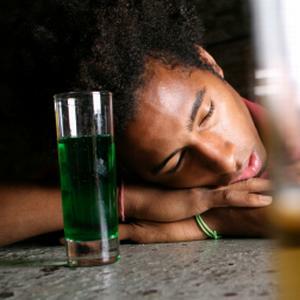
And now you have a terrible hangover and you're about as miserable as you've ever been.
Now it is morning and the whirring of the fridge sounds like a jackhammer in your head. The chink of light peering through between the curtains makes you feel as if you are being interrogated under a neon spotlight. Your mouth is as dry as a riverbed in the Namib. And the last time you felt this nauseous, you thought you were pregnant. Then you found out you were.
Why do we get hangovers?
“Hangovers are linked to high levels of alcohol in the bloodstream,” says Christina Dye in her book titled Hangovers: An Ounce of Prevention. “About 95 percent of the alcohol content of a drink is broken down in the liver. What’s left is excreted in sweat, breath and urine. But when intake outpaces output, blood alcohol level remains higher longer and the likelihood of a hangover increases.”
“The liver metabolises alcohol at a rate of an ounce of per hour – a full glass of wine or a large glass of beer. Obviously age, sex and weight also play a role. Hangover symptoms are felt as quickly as one hour after the last drink was consumed, but the worst symptoms strike 8 – 10 hours later and can last up to 24 hours. The body is basically responding as if it has been mildly poisoned – that accounts for the dizziness, headaches, dehydration and heartburn.”
Alcohol is a diuretic, which dehydrates you. Methanol and acetone are found in some drinks and many believe these cause hangovers rather than ethanol (alcohol). Brandy seems to be worst for hangovers, test results in the British Medical Journal have shown. Too much alcohol also depletes the body of vitamins and minerals and plays havoc with the blood sugar levels.
How to prevent hangovers
There are things you can do Dye says, apart from swearing never to drink a single drop again:
- Don’t drink on an empty stomach, as food slows the rate at which alcohol is absorbed.
- Drink slowly – sip rather than gulp. Never drink alcohol because you are thirsty, as it will only dehydrate you further.
- Space your drinks – drink fruit juice or soda water in between your alcoholic beverages
- Don’t mix drinks. This seems to make hangovers worse.
- Set a drinking limit for yourself and stick to it.
What you can do if you have a hangover
- Drink lots of water as this will rehydrate you and every time you urinate, you will be getting rid of some of the alcohol from the night before. Stay away from coffee.
- Do a bit of exercise, like a walk in the fresh air.
- Eat lots of food. If you are feeling nauseous, constantly nibble on some dry toast.
- Lie down and get some rest. Your body needs it. Take an aspirin or two to sort out the headache.
- Be patient. This too shall pass.
The only real cure for a hangover is prevention. “There are no true hangover remedies available,” said a spokesman for the Distilled Spirits Council of the United States. “The only real cure for a hangover is sobriety.” A sobering thought indeed.




 Publications
Publications
 Partners
Partners










